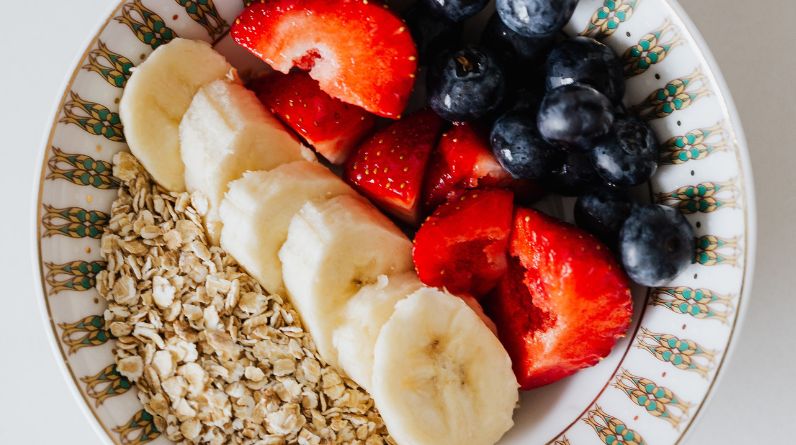
The battle of the bulge…We’ve all been there, standing in front of the fridge at midnight, contemplating whether that leftover slice of pizza should meet its glorious end in your stomach. If only there were some way to curb those late-night munchies, right? Well, that’s where appetite suppressants step into the ring. These little marvels have been making waves in the world of wellness, helping folks like you and me maintain a healthier relationship with food. But before you start picturing a pill that zaps away all cravings, let’s dive into what appetite suppressants really are and how they can support your quest for better eating habits.
A Not-So-Magical Solution
First things first, let’s burst the bubble of magic pills. Appetite suppressants aren’t some mystical elixir that makes you forget the existence of donuts. Nope, they’re not going to miraculously turn you into a kale-chomping, water-gulping fitness fanatic overnight. What they can do, however, is lend a helping hand on your journey to healthier eating.
The Appetite Chronicles
Before we get into the nitty-gritty, let’s talk about the fascinating world of your appetite. You see, it’s not just your stomach grumbling and asking for food. Nope, it’s a full-on orchestra of hormones, neurotransmitters, and psychological cues all coming together to create that undeniable craving for that slice of cake.
Appetite Suppressants: The Heroes We Need
Now, you might wonder, “What are these appetite suppressants, and how do they work?” Great questions, dear reader. Appetite suppressants come in various forms, from prescription medications to natural supplements and lifestyle changes. Here are some of the key players in the world of appetite control:
1. Prescription Medications: These are usually recommended for individuals with obesity or weight-related health issues. They work by altering your brain chemistry to reduce hunger or make you feel full faster. However, they’re not without potential side effects and should be taken under medical supervision.
2. Natural Supplements: On the gentler side of the spectrum, you’ll find natural appetite suppressant supplements. These often contain ingredients like glucomannan (a type of fiber that swells in your stomach), green tea extract (known to boost metabolism and reduce appetite), or 5-HTP (a precursor to serotonin, the feel-good hormone). They can be a more accessible and safer option for many.
3. Lifestyle Tweaks: Sometimes, it’s not about what you take, but how you live. Simple lifestyle changes, like staying hydrated (your body can mistake thirst for hunger), eating mindfully (put that phone down and savor your food), and getting enough sleep (a lack of shut-eye messes with your hunger hormones), can all naturally help you control your appetite.
The Dance of Hormones
Now, let’s dive into the fascinating science of how appetite suppressants work within the intricate dance of hormones that regulate your appetite.
Ghrelin – The “Hunger Hormone”: Ghrelin is often referred to as the “hunger hormone.” Think of it as the drumroll that announces mealtime. When your stomach is empty, ghrelin levels rise, making your tummy growl and sending signals to your brain that it’s time to refuel.
Leptin – The “Fullness Hormone”: In the other corner, we have leptin, the “fullness hormone.” This is the hormone that tells your brain, “Hey, you’ve had enough, put down that fork.” Leptin levels increase as you eat, signaling to your brain that you’re satisfied and don’t need more food.
Appetite Suppressants: The Science Bit
Now, let’s talk about how appetite suppressants waltz into this hormonal ballet. These clever aids have a VIP pass to the hormone concert happening in your body.
Mimicking Leptin: Some appetite suppressants have the incredible ability to mimic the effects of leptin. They make your brain think you’re fuller, sooner. This means you’re less likely to keep eating after your body has had enough. It’s like a friendly nudge to your brain, saying, “No need for that extra helping; we’re good.”
Taming Ghrelin: On the other side of the stage, certain suppressants are pros at reducing the impact of ghrelin, the hunger hormone. They calm down those pesky cravings that sometimes lead you to the kitchen when you’re not truly hungry. It’s like having a seasoned conductor directing the ghrelin orchestra to play a softer tune.
The Art of Portion Control
One of the neat tricks that appetite suppressants can teach you is the art of portion control. We often eat out of habit or because it’s what’s on our plate, not necessarily because we’re hungry. Here’s where these suppressants shine.
By helping you tune into your true hunger cues, they empower you to stop overeating and stick to healthier portion sizes. It’s like having a wise portion control coach on your shoulder, reminding you to savor your food without going overboard.
The Mental Game
Your brain plays a significant role in your appetite. Stress, emotions, and even social situations can trigger eating when you’re not actually hungry. Appetite suppressants can help you regain control over emotional eating by reducing the intensity of those cravings.
Conclusion
In the quest for healthier eating habits and improved well-being, appetite suppressants emerge as a valuable tool, offering support in the delicate balance of our complex relationship with food. They are not a magic wand to miraculously transform dietary choices, but rather, they serve as knowledgeable guides, helping individuals navigate the often tricky terrain of cravings, overeating, and emotional triggers.
By understanding the science behind these suppressants and their role in influencing hormonal responses, portion control, and emotional eating, we can appreciate how they encourage mindfulness in our dietary decisions. They prompt us to pause, reflect, and make choices that align with our long-term health goals.
However, it’s essential to remember that appetite suppressants are most effective when integrated into a holistic approach to wellness. They are companions on the journey to healthier eating habits, but not the sole answer. A balanced diet, regular physical activity, and a supportive environment all play vital roles in achieving lasting improvements in our relationship with food.
So, as we navigate the intricate world of appetite and nutrition, let us recognize the potential of appetite suppressants to support our aspirations for healthier eating habits. With mindfulness, informed choices, and a touch of external assistance, we can take the reins of our dietary choices, striving for a brighter, healthier future.
Frequently Asked Questions
Now, you might have a smorgasbord of questions about these appetite tamers. Don’t worry; we’ve got you covered.
1. Do appetite suppressants have side effects?
Yes, like many interventions, appetite suppressants can have side effects. It’s important to distinguish between prescription medications and natural supplements. Prescription medications, being more potent, often come with a higher likelihood of side effects. These can range from mild issues like dry mouth, constipation, or insomnia to more severe concerns like increased blood pressure or heart palpitations. That’s why they are typically prescribed under medical supervision.
Natural supplements, on the other hand, tend to have fewer side effects. However, that doesn’t mean they are entirely without risk. Even with these, you may experience mild side effects like digestive discomfort or a dry mouth, but these are usually less severe than those associated with prescription drugs. To minimize these risks, always opt for high-quality products from reputable manufacturers and stick to the recommended dosages. Remember, when it comes to supplements, more is not necessarily better.
2. Can I use appetite suppressants for weight loss?
Absolutely, but it’s important to understand their role in the bigger picture of weight loss. Appetite suppressants can indeed be a valuable tool in your weight loss toolbox. They work by helping you control your hunger and reduce your calorie intake, making it easier to stick to a reduced-calorie diet. This can potentially accelerate your weight loss progress.
However, it’s crucial to view them as part of a broader weight loss strategy. They shouldn’t be relied upon as the sole method for shedding pounds. A balanced diet, one that provides essential nutrients and supports your overall health, is essential. Regular physical activity is another key component. Combining these elements with appetite suppressants can help you achieve more sustainable and long-lasting results.
3. Will I feel hungry all the time without suppressants?
No, the goal of appetite suppressants is not to leave you feeling hungry all the time. In fact, quite the opposite. These suppressants are designed to help you recognize your true hunger cues and prevent overeating. They work by modulating the hormones and neurotransmitters that control your appetite.
What they do is create a sensation of fullness or satisfaction even with smaller portions of food. This means you’ll still feel hungry when it’s time to eat, but you’ll likely require less food to feel satisfied. It’s a more mindful and balanced approach to eating that can help you make healthier choices and reduce overconsumption.
4. Can I become dependent on appetite suppressants?
One of the advantages of natural supplements, as opposed to prescription medications, is that they are less likely to create dependency. They work in harmony with your body’s natural hunger and satiety cues. However, it’s crucial to understand that they are not a solution to the root causes of overeating, such as emotional eating or unhealthy habits.
If you rely solely on suppressants without addressing these underlying issues, there’s a risk of dependency. To ensure long-term success, it’s essential to use suppressants as part of a comprehensive strategy that includes behavior modification, healthier eating habits, and emotional well-being. This approach helps you tackle the root causes of overeating, making you less reliant on suppressants over time.
5. Are appetite suppressants safe for everyone?
In general, natural supplement-based appetite suppressants are considered safer for most people than prescription medications. However, there are some caveats. First and foremost, it’s advisable to consult with a healthcare professional before starting any new supplement regimen, especially if you have underlying health conditions or are taking other medications.
While natural supplements tend to have fewer side effects, individual reactions can vary. Some people may still experience mild side effects. Additionally, certain health conditions or allergies may contraindicate the use of specific supplements. That’s why it’s crucial to seek professional guidance to ensure that appetite suppressants are safe and appropriate for your unique situation.
6. Can I use these while pregnant or breastfeeding?
Using appetite suppressants, whether prescription medications or natural supplements, is generally not recommended during pregnancy or while breastfeeding. During these critical periods, it’s essential to prioritize your health and the health of your baby. The potential effects of appetite suppressants on fetal development or breast milk composition are not well understood, making it advisable to avoid them.
If you’re considering weight management during pregnancy or while breastfeeding, it’s best to consult with a healthcare provider who can provide guidance on safe and healthy approaches that won’t compromise your well-being or that of your child.
7. Do I need a prescription for appetite suppressants?
Yes, prescription medications for appetite suppression typically require a doctor’s prescription. These medications are more potent and often come with a higher risk of side effects, so their use should be carefully monitored by a healthcare professional. On the other hand, natural supplements are generally available over the counter and do not require a prescription. However, it’s still advisable to consult with a healthcare provider before using any new supplement.
8. How quickly do appetite suppressants work?
The timeline for the effectiveness of appetite suppressants can vary widely depending on the type of suppressant and the individual. Some people may experience noticeable effects within a few days of consistent use, while others may take longer. It’s important to be patient and consistent with your chosen suppressant. Keep in mind that the best results often come when you combine suppressant use with a balanced diet and regular physical activity.
9. Can I use them to control emotional eating?
Yes, appetite suppressants can be helpful in controlling emotional eating to some extent. They work by reducing the intensity of cravings, making it easier to resist the urge to eat in response to emotions rather than hunger. However, it’s essential to recognize that emotional eating often has deep-rooted causes that go beyond simple hunger cues.
For long-term success, it’s crucial to address the underlying emotional triggers for overeating. This may involve seeking support from a therapist or counselor who specializes in emotional eating, learning healthier coping strategies, and developing a more mindful relationship with food.
10. Are there specific diets that work best with appetite suppressants?
No specific diet is required when using appetite suppressants. However, a balanced and nutrient-dense diet is typically recommended for the best results. The goal is not to restrict your diet excessively but to help you make healthier choices and reduce overall calorie intake naturally.
A diet rich in whole grains, lean proteins, fruits, vegetables, and healthy fats can provide essential nutrients and support your overall health while working in tandem with appetite suppressants. It’s also essential to stay hydrated and avoid excessive consumption of sugary or highly processed foods, which can counteract the effects of suppressants and lead to unhealthy eating patterns.
Appetite Suppressants: The Supporting Act
So, there you have it. Appetite suppressants aren’t the star of the show, but they’re definitely valuable members of the supporting cast on your journey to healthier eating habits. Remember, they work best when paired with mindful eating, regular physical activity, and a dash of patience. While they might not turn you into a broccoli enthusiast overnight, they can help you take back control of your cravings and make healthier choices, one bite at a time.





